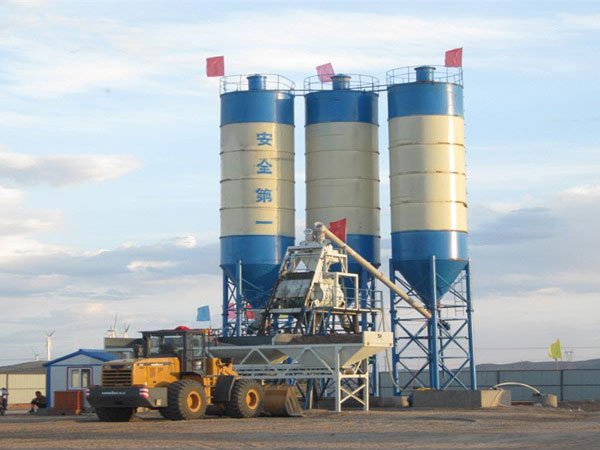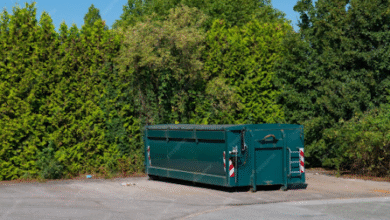
When it comes to delivering consistent, high-quality concrete for construction projects, selecting the right ready mix concrete batching plant is crucial. For project managers, contractors, and construction companies, this equipment is the backbone of efficient, on-time, and cost-effective operations. In today’s competitive market, understanding the key specifications that determine the performance of a batching plant can make the difference between project success and costly delays.
As a trusted name in construction equipment, Kaushik Engineering Works has been helping businesses choose batching plants that meet their exact requirements. In this blog, we’ll explore the most important specifications to look for before making an investment.
1. Production Capacity
One of the first specifications to check is the production capacity of the batching plant, often measured in cubic meters per hour (m³/h). The right capacity depends on your project scale and the volume of concrete required daily.
-
Small to Medium Projects: Plants with capacities ranging from 25–50 m³/h are ideal.
-
Large-Scale Projects: For infrastructure developments, plants with capacities of 90 m³/h or more ensure timely delivery of large quantities.
Matching the plant’s capacity with your project demand avoids unnecessary downtime or overinvestment.
2. Type of Batching Plant
Ready mix batching plants can be categorized based on their design and mobility:
-
Stationary Plants: Installed at a fixed location, perfect for long-term, large-scale projects where the plant remains in one place.
-
Mobile Plants: Designed for portability, allowing setup near multiple project sites. This flexibility reduces transportation costs and time.
-
Compact Plants: Ideal for urban projects where space is limited, offering easy installation without compromising efficiency.
Choosing the right type depends on your project’s geographical spread, space availability, and schedule.
3. Mixer Type and Capacity
The mixer is the heart of a batching plant. The quality of concrete largely depends on the type and efficiency of the mixer used.
-
Twin Shaft Mixers: Known for high-intensity mixing and producing uniform concrete. Best for large-scale production.
-
Planetary Mixers: Suitable for producing high-quality concrete in smaller batches.
-
Drum Mixers: More common in small projects with limited requirements.
The mixer’s capacity should align with the plant’s overall output to maintain a steady production rate.
4. Batching Accuracy
Accurate weighing and proportioning of cement, aggregates, water, and additives are essential to achieving consistent concrete quality. Modern plants feature advanced weighing systems with minimal tolerance levels, ensuring every batch meets the desired strength and workability.
Look for plants with digital load cells and automated control systems that minimize human error and maintain precision.
5. Automation and Control Systems
Automation streamlines plant operations, improves consistency, and reduces labor dependency. Advanced control panels can monitor:
-
Real-time production data
-
Aggregate moisture content
-
Mixer performance
-
Automatic adjustment of mix proportions
Touchscreen interfaces, remote monitoring, and software integration are valuable features that enhance operational efficiency.
6. Aggregate Storage and Handling
Adequate aggregate storage is crucial for uninterrupted production. Key considerations include:
-
Number of Bins: More bins mean greater flexibility in mix designs.
-
Capacity: Sufficient storage to match production needs without frequent refilling.
-
Feeding System: Options include skip hoist or belt conveyor systems—belt conveyors are faster, while skip hoists are more compact.
Proper design reduces spillage, contamination, and downtime.
7. Cement Storage and Feeding
A high-quality batching plant will include well-designed cement silos with moisture-proof features to prevent cement deterioration. Pneumatic feeding systems ensure efficient cement transfer to the weighing hopper. The silo capacity should be large enough to support continuous operation, especially in remote or large-scale projects.
8. Water and Additive Dosing
Water content directly affects the concrete’s strength and durability. Automated water dosing systems measure water precisely, adjusting for aggregate moisture variations. Similarly, precise dosing of chemical admixtures ensures optimal setting times, workability, and performance of the concrete.
9. Mobility and Installation Time
For projects requiring frequent relocation, mobility becomes a major consideration. Mobile plants should have:
-
Foldable structures for easy transport
-
Quick setup features requiring minimal civil work
-
Compatibility with standard trailers for cost-effective movement
Faster installation means reduced project delays and quicker returns on investment.
10. Durability and Build Quality
A batching plant is a long-term investment. The frame, mixers, bins, and silos should be made of high-grade materials resistant to wear, corrosion, and harsh weather conditions. Heavy-duty galvanizing, robust welding, and quality finishes enhance the plant’s lifespan and reduce maintenance costs.
11. Energy Efficiency
Energy consumption is an ongoing operational cost. Look for plants with energy-efficient motors, optimized mixing cycles, and smart load management systems. Lower energy use not only cuts costs but also reduces your carbon footprint.
12. Ease of Maintenance
Downtime due to maintenance issues can be costly. Choose plants designed for easy access to wear parts, equipped with safety features, and supported by readily available spare parts. Preventive maintenance schedules and service support from the manufacturer further ensure uninterrupted operation.
13. Compliance with Standards
Make sure the plant meets industry regulations and standards for safety, environmental protection, and concrete quality. Compliance ensures that your projects meet legal requirements and achieve desired performance benchmarks.
Final Thoughts
Investing in the right ready mix concrete batching plant requires careful evaluation of its specifications, from production capacity and mixer type to automation and durability. Each feature plays a vital role in ensuring consistent quality, efficiency, and profitability in your projects.
By focusing on these key aspects, contractors and project managers can avoid costly mistakes and select equipment that delivers maximum value. Partnering with experienced manufacturers like Kaushik Engineering Works ensures that you not only get a plant that meets your technical needs but also benefit from expert guidance, reliable service, and long-term support.
Whether you’re working on residential, commercial, or large-scale infrastructure projects, the right batching plant will serve as the foundation of your success.




